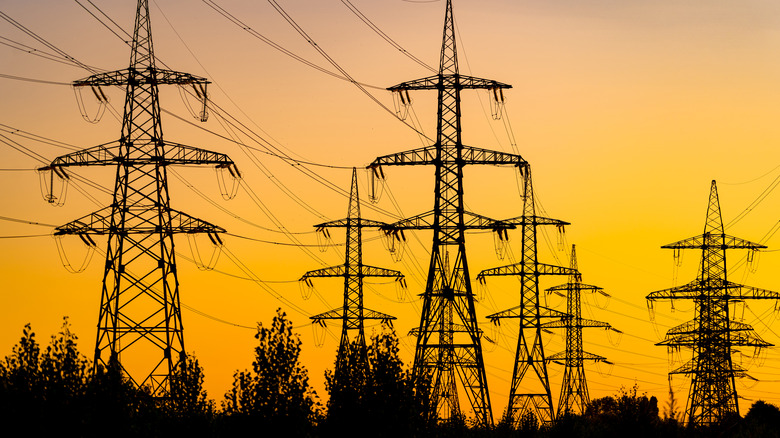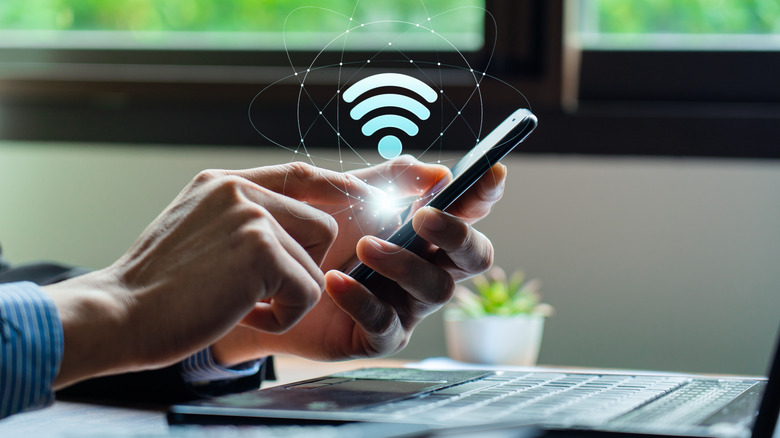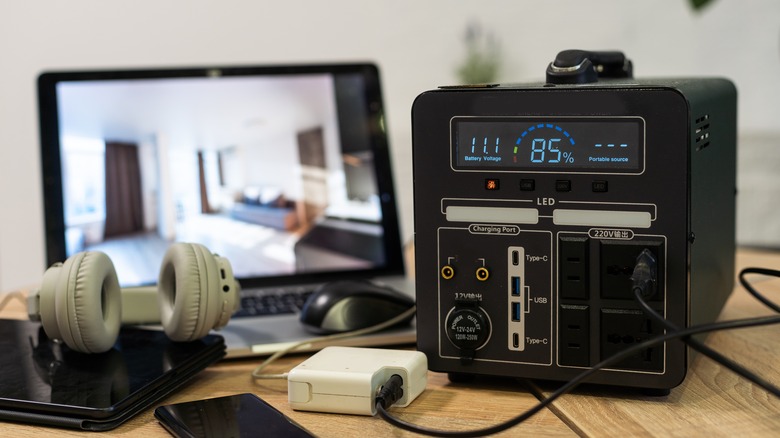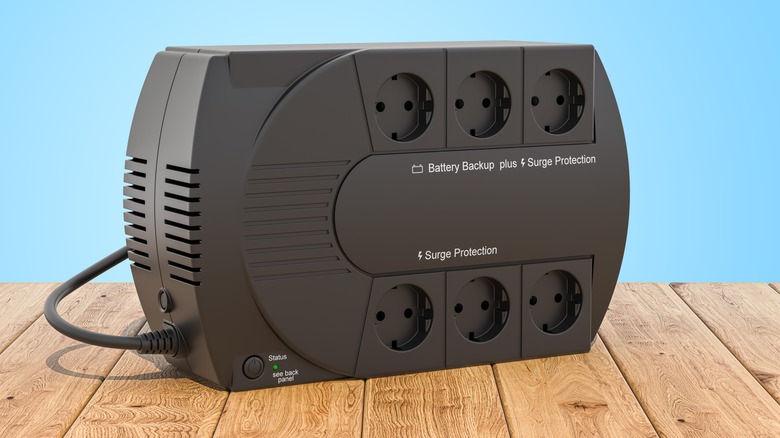The 4 Easiest And Cheapest Ways To Stay Online During An Outage
As extreme weather becomes more common across the globe, so do power outages. According to Climate Central, in the U.S. alone, weather was to blame for 80% of power outages between 2000 and 2023. This trend shows no sign of slowing, so chances are, if it hasn't happened already, sooner or later, you'll find yourself without power. Beyond extreme weather, a vehicle running into a utility pole, construction, and even animals are just a few of the other causes of blackouts. That's why it's always a good idea to have a survival plan in case of a power outage, which includes having things like generators and portable batteries on hand. Depending on what causes a power outage, you could be looking at anywhere from a few hours to several days without power.
A common concern when the power goes out is how to stay online. With so many people working remotely these days, staying online has become even more important. The good news is, in most cases, your internet will continue working during an outage. That's because most internet service providers use backup generators that allow them to stay online when there's a power outage. Your main concern will be ensuring you can power your modem, router, or another device that allows you to connect to the internet.
Use your phone as a hotspot
Using your phone as a mobile hotspot is the quickest and easiest way to connect to the internet during a power outage. You can connect your devices to your phone's hotspot, which is almost like using your home's Wi-Fi, only the speeds are significantly slower. When you use your phone as a hotspot, it acts as a router, broadcasting its signal for other devices to connect to. You can use your iPhone as a hotspot or set up an Android phone as a hotspot relatively quickly.
Another option is tethering a device to your phone using a USB cable or a Bluetooth connection. Tethering works similarly to a hotspot and allows the connected device to connect to the internet through your smartphone. If you run into problems with Android USB tethering, they're generally easy to fix, making it a reliable way to connect to the internet if your power goes out.
You should keep in mind that using your phone as a hotspot will drain its battery quickly, and once the battery dies, you won't be able to connect to the internet. Another option is purchasing a portable mobile hotspot, which works the same way as your phone's hotspot, only it's an independent unit with its own batteries. Keep in mind that just because your phone has a hotspot option doesn't mean it's included in your phone plan. So, you should check with your cellular provider to ensure you can use this feature. Also, if you don't have an unlimited data plan, using your phone's hotspot can quickly put you over your limit.
Invest in a portable power solution
While a hotspot will keep your devices connected to the internet during a short power outage, if the blackout stretches into hours or days, it won't do you much good. Without power, you won't be able to charge your smartphone, making it impossible to use it as a hotspot. That's why if you live in an area that experiences frequent blackouts, it might be worth investing in a portable power station or power bank to keep your devices connected to the internet for a longer period of time. While most power banks are good for recharging a phone a couple of times, some of the best power banks are powerful enough to recharge a laptop, although they'll cost you a few hundred dollars.
If you need to power devices like a modem and router to stay online, a portable power station is also an option. While portable power generators can cost a couple of thousand dollars, there are affordable options, like the PGYOB 200W Power Station SlashGear tested that retails for $99.99. You'll have to shop around to find the generator that best meets your needs, depending on how many devices or appliances you need to power during an outage. Power station options like Bluetti's AC2A and AC70 also have solar charging support, that'll allow you to even when your power is out.
Add cellular internet backup
Some internet providers know how important it is for people to stay online when there's a power outage and have created backup plans for these scenarios. These plans come with all the equipment you need to stay online when your standard internet connection stops working. If you get your internet through Comcast Xfinity, you might want to consider adding Xfinity Storm-Ready Wi-Fi to your plan. Xfinity Storm-Ready Wi-Fi costs an extra $7 per month for 36 months, or you can make a one-time $252 payment to access the service. The price includes unlimited 4G LTE cellular data and a four-hour battery backup.
T-Mobile's Home Internet Backup is similar to Xfinity's Storm-Ready Wi-Fi and will keep you connected to the internet when your main connection stops working. The T-Mobile plan includes 130 GB of 5G data a month, which the company says is enough to last seven days with normal usage. If you're a T-Mobile voice customer, for a limited time, you can get the plan for $20 per month with autopay; otherwise, you'll pay $30 per month with autopay. T-Mobile's 5G Wi-Fi gateway device is included in the price. Since the gateway device needs to be plugged in, you'll need a backup power supply to use the service during blackouts.
Use an uninterruptible power supply
While an uninterruptible power supply (UPS) will only keep your computer running for a few minutes during an outage, it can power a router for much longer, which can keep you online if your power goes out. That's because routers consume a lot less energy than your average PC, allowing the UPS to keep it going for several hours in some cases. A UPS works by constantly monitoring the power supply from the outlet it is plugged into. If it detects an outage, it immediately switches to its internal battery power, so you won't experience any interruption in the power supply.
Without a UPS, your modem would shut down as soon as the power goes out, leaving you unable to get online. If you have a computer connected to the UPS, you'll have enough time to shut it down and save your work. A UPS also protects connected devices from power surges and spikes by regulating the voltage to ensure they get a steady and safe amount of power. The amount of time a UPS keeps you online will depend on its capacity and the power consumption of your router.




